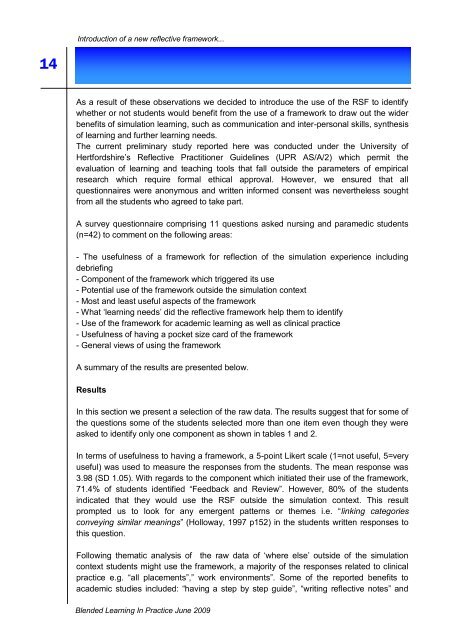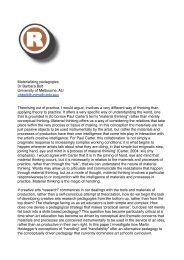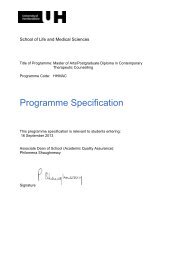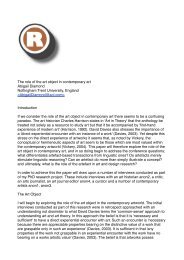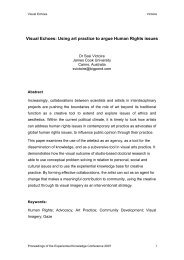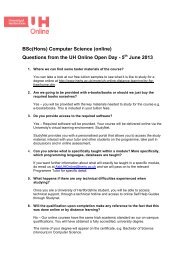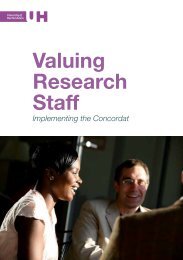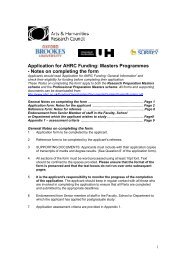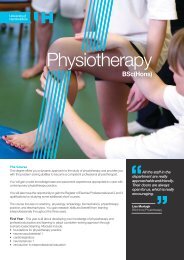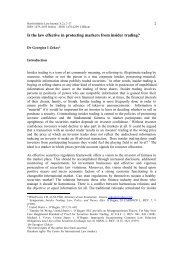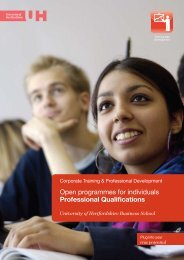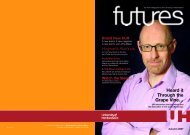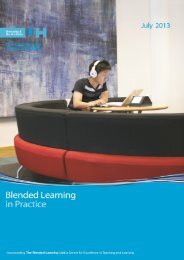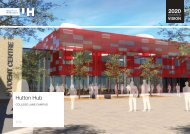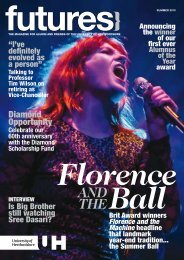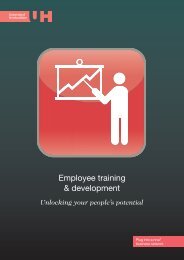June 2009 - University of Hertfordshire
June 2009 - University of Hertfordshire
June 2009 - University of Hertfordshire
Create successful ePaper yourself
Turn your PDF publications into a flip-book with our unique Google optimized e-Paper software.
Introduction <strong>of</strong> a new reflective framework...<br />
14<br />
As a result <strong>of</strong> these observations we decided to introduce the use <strong>of</strong> the RSF to identify<br />
whether or not students would benefit from the use <strong>of</strong> a framework to draw out the wider<br />
benefits <strong>of</strong> simulation learning, such as communication and inter-personal skills, synthesis<br />
<strong>of</strong> learning and further learning needs.<br />
The current preliminary study reported here was conducted under the <strong>University</strong> <strong>of</strong><br />
<strong>Hertfordshire</strong>‟s Reflective Practitioner Guidelines (UPR AS/A/2) which permit the<br />
evaluation <strong>of</strong> learning and teaching tools that fall outside the parameters <strong>of</strong> empirical<br />
research which require formal ethical approval. However, we ensured that all<br />
questionnaires were anonymous and written informed consent was nevertheless sought<br />
from all the students who agreed to take part.<br />
A survey questionnaire comprising 11 questions asked nursing and paramedic students<br />
(n=42) to comment on the following areas:<br />
- The usefulness <strong>of</strong> a framework for reflection <strong>of</strong> the simulation experience including<br />
debriefing<br />
- Component <strong>of</strong> the framework which triggered its use<br />
- Potential use <strong>of</strong> the framework outside the simulation context<br />
- Most and least useful aspects <strong>of</strong> the framework<br />
- What „learning needs‟ did the reflective framework help them to identify<br />
- Use <strong>of</strong> the framework for academic learning as well as clinical practice<br />
- Usefulness <strong>of</strong> having a pocket size card <strong>of</strong> the framework<br />
- General views <strong>of</strong> using the framework<br />
A summary <strong>of</strong> the results are presented below.<br />
Results<br />
In this section we present a selection <strong>of</strong> the raw data. The results suggest that for some <strong>of</strong><br />
the questions some <strong>of</strong> the students selected more than one item even though they were<br />
asked to identify only one component as shown in tables 1 and 2.<br />
In terms <strong>of</strong> usefulness to having a framework, a 5-point Likert scale (1=not useful, 5=very<br />
useful) was used to measure the responses from the students. The mean response was<br />
3.98 (SD 1.05). With regards to the component which initiated their use <strong>of</strong> the framework,<br />
71.4% <strong>of</strong> students identified “Feedback and Review”. However, 80% <strong>of</strong> the students<br />
indicated that they would use the RSF outside the simulation context. This result<br />
prompted us to look for any emergent patterns or themes i.e. “linking categories<br />
conveying similar meanings” (Holloway, 1997 p152) in the students written responses to<br />
this question.<br />
Following thematic analysis <strong>of</strong> the raw data <strong>of</strong> „where else‟ outside <strong>of</strong> the simulation<br />
context students might use the framework, a majority <strong>of</strong> the responses related to clinical<br />
practice e.g. “all placements”,” work environments”. Some <strong>of</strong> the reported benefits to<br />
academic studies included: “having a step by step guide”, “writing reflective notes” and<br />
Blended Learning In Practice <strong>June</strong> <strong>2009</strong>


